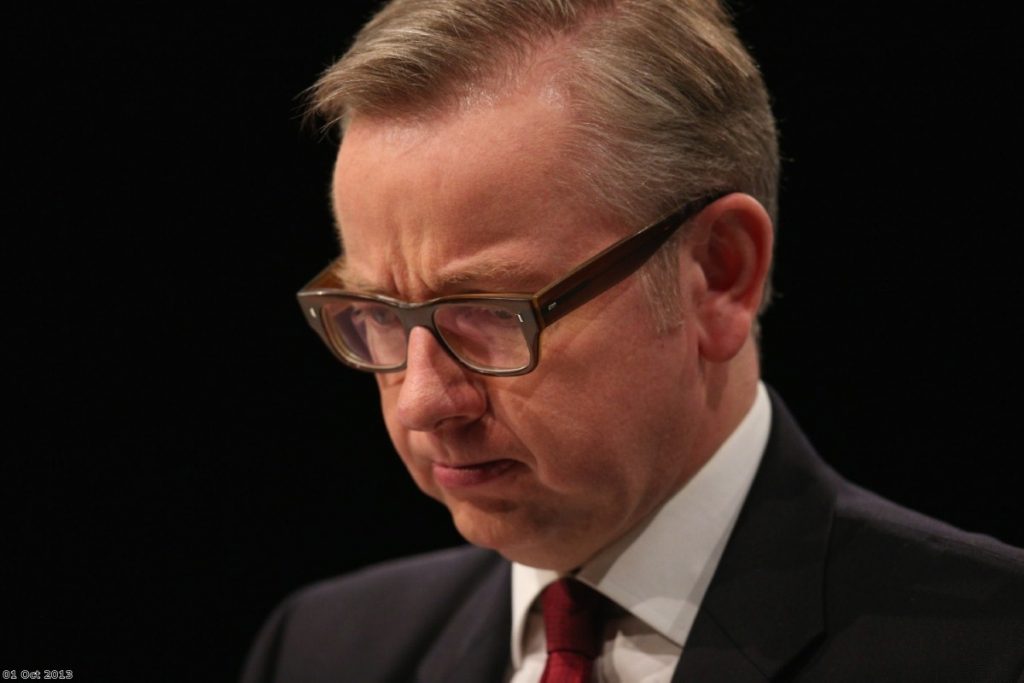Last week, a leading troupe of British politicians — from eras past and present — assembled in a quaint, picturesque Oxford country house for a conspicuously clandestine conference.
It was a two-day affair and its guiding question, according to documents leaked to the Observer, was: “How can we make Brexit work better with our neighbours in Europe?”.
The meeting’s mission statement arguably points to the influence of insurgent Brexit-scepticism in British politics, with purported post-Brexit “failings” still a taboo topic in government circles.
Many were shocked to learn, therefore, that among the attendees at the “make Brexit work” “private” summit were Michael Gove, a cabinet minister and lead-leaver in the 2016 EU referendum; former Conservative party leader and Brexiteer Michael Howard; former co-chair of Vote Leave and crossbench peer, Gisela Stuart; and onetime Conservative chancellor, Norman Lamont. They were joined by several high-profile Labour politicians, including shadow foreign secretary, David Lammy; shadow defence secretary, John Healey; and former New Labour cabinet minister and prime Machiavel, Peter Mandelson. No stranger to secrecy, Mandelson was perhaps unsurprisingly tasked with chairing duties.


This covert, cross-party gathering stands apart as a significant moment in the still-unravelling story of Brexit. Convened at Ditchley Park in Oxfordshire, its very nature as a joint Labour and Conservative initiative signals some new thinking in our post-Brexit political approach. Bipartisanship on Brexit was trialled to much ridicule by Theresa May in 2019, so that a leading government figure in Gove is now willing to engage with Labour on the EU, arguably shows how far the terms of the debate have shifted.
The Observer scoop suggests the meeting itself was well-mannered and focussed. One source indicated that “The main thrust of it was that Britain is losing out, that Brexit is not delivering”, with summit documents detailing moreover that there is “clear British strategic interest in a productive and closer relationship”. The outbreak of harmony on these issues, especially on such Brexit-sceptical terms, is a matter well-worthy of careful consideration.
Curiously, the conference appears to have operated on fundamentally anti-political terms. Forged at the intersection of cross-party post-Brexit thought, its veiled secrecy ensured its work was unembittered by the churn of the news cycle and the infractions of partisan politics. After seven years of steamrollering stand-offs, it may all be evidence that post-Brexit politics is depolarising on terms both Brexit-accepting and Brexit-critical.
For Sir Keir Starmer’s Labour, this is good news. Since 2020, Sir Keir has taken a roundly pragmatic approach to Brexit, rejecting “rejoin” calls while committing his party to the 2025 review of the Trade and Co-operation Agreement (TCA) as a vehicle to pursue incremental changes to the UK-EU relationship. Electorally, Starmer also sees learning to think and speak like a Brexiteer as a crucial step in regaining the trust of the Red Wall. Intent on winning back Brexit-supporting voters lost en masse to the Conservatives in 2019, Starmer wants to make Brexit “work” on Labour’s terms, “taking back control” in the process.
That “making Brexit work” was the guiding principle of last week’s secret Brexit summit, could suggest that Sir Keir is winning the post-Brexit argument, even among some in government. Tellingly, the Observer’s secret summit scoop followed a report in Bloomberg, which suggested that closer UK-EU relations are being debated by civil servants on defence, migration and “economic statecraft which includes issues such as trade, energy and international standards”. The political trajectory it seems, both from the government and from Labour, is towards closer post-Brexit ties.
Of course, there remain those implacably opposed to this new approach from the government — including Brexit “purists” in the European Research Group (ERG) and Farage-types in Reform UK (the restyled Brexit party).
The reports of a secret “soft-Brexit” summit, attended by erstwhile second referendum supporters and chaired by New Labour “prince of darkness” Mandelson, covers all the tropes of an anti-Brexit conspiracy. Duly, the Ditchley Park plot has been denounced by Sir Iain Duncan Smith, who labelled the secret conference as “a classic Mandlesonian attempt to manipulate the process”. The Daily Mail led its Monday coverage with a warning from former chief Brexit negotiator Lord Frost that a “secret plot” is underway to subvert the 2016 referendum.
This reaction underlines the dynamics of a new political divide, with Conservative Brexit “pragmatists”, potentially supported by Labour, now doing battle with ideological “purists” in the ERG and Reform UK. The subsequent fallout produces a media circus and open briefing war among Conservative MPs. Farage, inevitably, delivers slighting sermons from his GB News pulpit.
We saw this dynamic grip the Conservative party in November, amid rumours that the government was pursuing a “Swiss-style” deal with the EU. And just like the “Swiss-style” deal debate, the secret summit debacle had prompted denunciations from those in government. But Sunak’s suggestion that he did now know of the summit will not remedy the destructive “purist”-“pragmatist” spiral, as the ERG grows increasingly suspicious of the government and the intentions of its leading man.
At every turn, the Brexit purist vs. Brexit pragmatist divide seems to harden.
For the Conservative party, this is the crucial point. Recent history shows the eurosceptic wing’s success in moulding and conditioning government policy; it means that if Sunak is forced into a showdown with his MPs — amid a Faragist furore of Brexit betrayal — the prime minister risks scuppering any political capital he has left.
Indeed, the ERG sees ideological purity as its inheritance following its involvement in the Brexit tussles from 2016-2019. No Peter Mandelson-chaired conference will change that. Informed by an ever-hardening siege mentality, the secret summit will only increase the group’s embittered jitters.
In the coming weeks, the thorny debate over a potential Northern Ireland Protocol resolution may force the Brexit pragmatist vs. Brexit purist cleavage into the centre stage of British politics once again. Expect the rhetoric to step up significantly if Sunak reaches a settlement deemed unsatisfactory by the ERG — especially if Sir Keir, as Labour has suggested, pragmatically backs the new deal.












